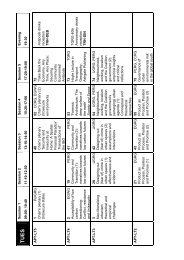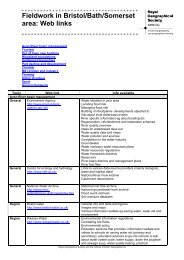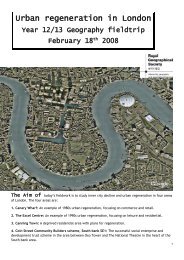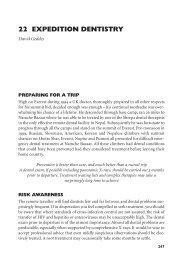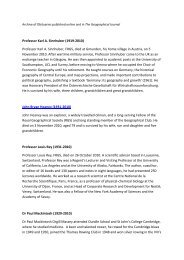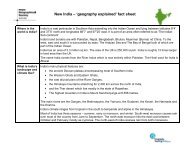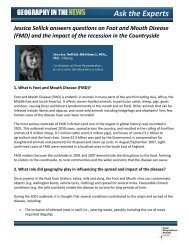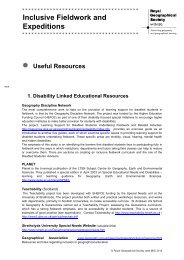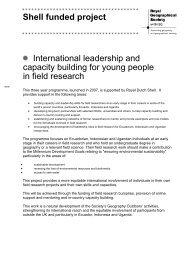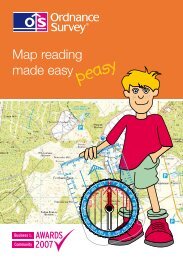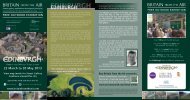The full programme book (PDF) - Royal Geographical Society
The full programme book (PDF) - Royal Geographical Society
The full programme book (PDF) - Royal Geographical Society
Create successful ePaper yourself
Turn your PDF publications into a flip-book with our unique Google optimized e-Paper software.
THEME 9: PALAEOECOLOGY<br />
Beetles, bones and biozones: Quaternary palaeozoology in relation to<br />
environmental change<br />
Adrian M Lister<br />
Department of Earth Sciences, Natural History Museum, London SW7 5BD<br />
<strong>The</strong> study of Quaternary palaeozoology has made enormous strides in the past 50 years –<br />
aided by both conceptual and technological advances, and the much firmer chronological<br />
framework provided by stratigraphic and dating refinements. <strong>The</strong> sequence of faunal<br />
change though Middle and Late Pleistocene temperate stages is better known for the UK<br />
than anywhere else, allowing analysis of faunal turnover in relation to environmental<br />
change, although cold faunas preceding the last glaciation remain less well understood.<br />
Landmark studies of beetles and, more recently, other animal groups, have provided<br />
important proxies of environmental change, and have led to niche-modelling approaches<br />
with both retrodictive and predictive power. Direct insight into the ecology of individual<br />
organisms and species is provided by methods barely conceived 50 years ago, such as<br />
the reconstruction of diet using dental microwear, mesowear and stable isotope analysis.<br />
Puzzling non-analogue assemblages are now increasingly understood, as much in terms<br />
of varying migratory response rates of different organisms as of genuinely non-analogue<br />
environmental drivers. Large radiocarbon datasets allow detailed mapping of range shifts<br />
through time, providing insights especially into the role of refugia and the dynamics of late<br />
Quaternary megafaunal extinctions.



